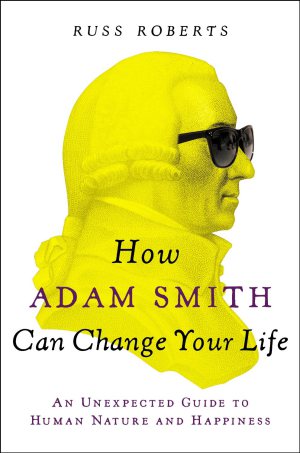Anyone seeking to claim Edmund Burke’s mantle should recognize the depth of his commitment to economic freedom.
To Adam Smith be True: A Conversation with Russ Roberts
Did you know that Adam Smith’s The Theory of Moral Sentiments can change your life? In essays on self-knowledge, happiness, virtue, being loved and being lovely, making the world a better place, and most importantly, fame and self-deception, Russ Roberts’ new book on Smith explores why the 18th century Scottish philosopher has the cure for the denizen of late modernity. The man mostly known for articulating in The Wealth of Nations how nations become rich and how they impoverish themselves also wrote eloquently on why we want to be loved and why we struggle with being lovely. In short, Smith soberly reminds that we easily deceive ourselves as to just how lovely we are. We want fame and wealth, Smith says, but does this conduce to our happiness? At the heart of our conduct, of knowing how to hit true north with our actions, is the impartial spectator according to Smith.
This spectator, Smith says, “is reason, principle, conscience, the inhabitant of the breast, the man within, the great judge and arbiter of our conduct. It is he who . . . calls to us, with a voice capable of astonishing the most presumptuous of our passions, that we are but one of the multitude, in no respect better than any other in it.” Roberts observes that this spectator is the community itself, reminding us of how small we are, of the humility that we easily forget. This is the problem we face in living well. How do we stand up in relation to the spectator?
But is this also Smith’s problem? We discuss what problems are introduced here with Smith’s impartial spectator. Does it have the objective capacity to chasten us if its standards are of the community? What if the community itself is bad?
There is also what is commonly referred to as the Adam Smith problem, which Roberts invites us to consider. How does the Smith of self-interest, of the commercial society that we see in The Wealth of Nations, reconcile its passions with the sobriety of life that he recommends in The Theory of Moral Sentiments?



